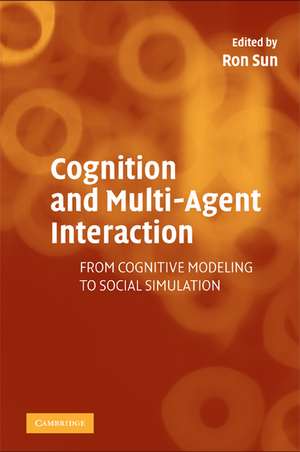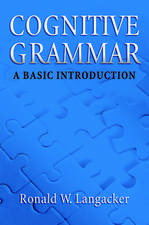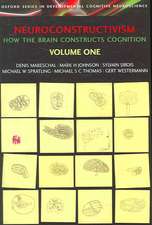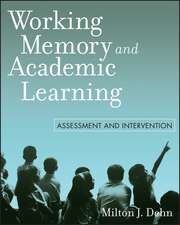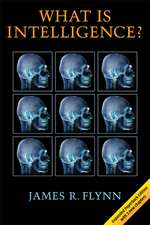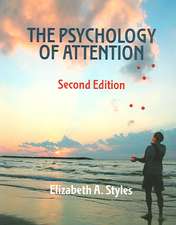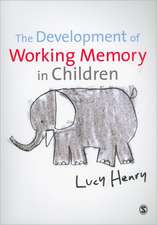Cognition and Multi-Agent Interaction: From Cognitive Modeling to Social Simulation
Editat de Ron Sunen Limba Engleză Paperback – 25 mai 2008
| Toate formatele și edițiile | Preț | Express |
|---|---|---|
| Paperback (1) | 312.46 lei 6-8 săpt. | |
| Cambridge University Press – 25 mai 2008 | 312.46 lei 6-8 săpt. | |
| Hardback (1) | 551.55 lei 6-8 săpt. | |
| Cambridge University Press – 4 dec 2005 | 551.55 lei 6-8 săpt. |
Preț: 312.46 lei
Nou
Puncte Express: 469
Preț estimativ în valută:
59.79€ • 62.58$ • 49.76£
59.79€ • 62.58$ • 49.76£
Carte tipărită la comandă
Livrare economică 31 martie-14 aprilie
Preluare comenzi: 021 569.72.76
Specificații
ISBN-13: 9780521728959
ISBN-10: 0521728959
Pagini: 448
Dimensiuni: 151 x 228 x 20 mm
Greutate: 0.59 kg
Ediția:1
Editura: Cambridge University Press
Colecția Cambridge University Press
Locul publicării:New York, United States
ISBN-10: 0521728959
Pagini: 448
Dimensiuni: 151 x 228 x 20 mm
Greutate: 0.59 kg
Ediția:1
Editura: Cambridge University Press
Colecția Cambridge University Press
Locul publicării:New York, United States
Cuprins
Part I. Introduction: 1. Prolegomena to integrating cognitive modeling and social simulation Ron Sun; Part II. Overviews of Cognitive Architectures: 2. Modeling paradigms in ACT-R Niel Taatgen, Christian Lebiere and John Anderson; 3. Considering Soar as an agent architecture Robert Wray and Randolph M. Jones; 4. The CLARION cognitive architecture: extending cognitive modeling to social simulation Ron Sun; Part III. Modeling and Simulating Cognitive and Social Processes: 5. Cognitive architectures, game playing, and human evolution Robert West, Christian Lebiere, and Dan Bothell; 6. Simulating a simple case of organizational decision making Isaac Naveh and Ron Sun; 7. Cognitive modeling of social behaviors William J. Clancey, Maarten Sierhuis, Bruce Damer, and Boris Brodsky; 8. Cognitive agents interacting in real and virtual worlds Brad Best and Christian Lebiere; 9. Modeling social emotions and social attributions Jonathan Gratch, Wenji Mao, and Stacy Marcella; 10. Communicating and collaborating with robotic agents J. Gregory Trafton, Alan C. Schultz, Nicholas L. Cassimatis, Laura M. Hiatt, Dennis Perzanowski, Derek P. Brock, Magdalena D. Bugajska, and William Adams; 11. Behavior-based methods for modeling and structuring control of social robots Dylan Shell and Maja Mataric; 12. Evolution of a teamwork model Nathan Schurr, Steven Okamoto, Rajiv T. Matheswaran, and Milind Tambe; 13. Sociality in embodied neural agents Domenico Parisi and Stefano Nolfi; 14. Cognitive architecture and contents for social structures and interactions Cristiano Castelfranchi; Part IV. A Symposium: 15. Cognitive science and good social science Scott Moss; 16. Collective cognition and emergence in multi-agent systems Pietro Panzarasa and Nick Jennings; 17. Social judgement in multi-agent systems Tom Burns and Ewa Roszkowska; 18. Including human variability in a cognitive architecture to improve team simulation Frank Ritter and Emma Norling; 19. When does social simulation need cognitive models? Nigel Gilbert.
Descriere
This book explores the intersection between individual cognitive modeling and modeling of multi-agent interaction.
